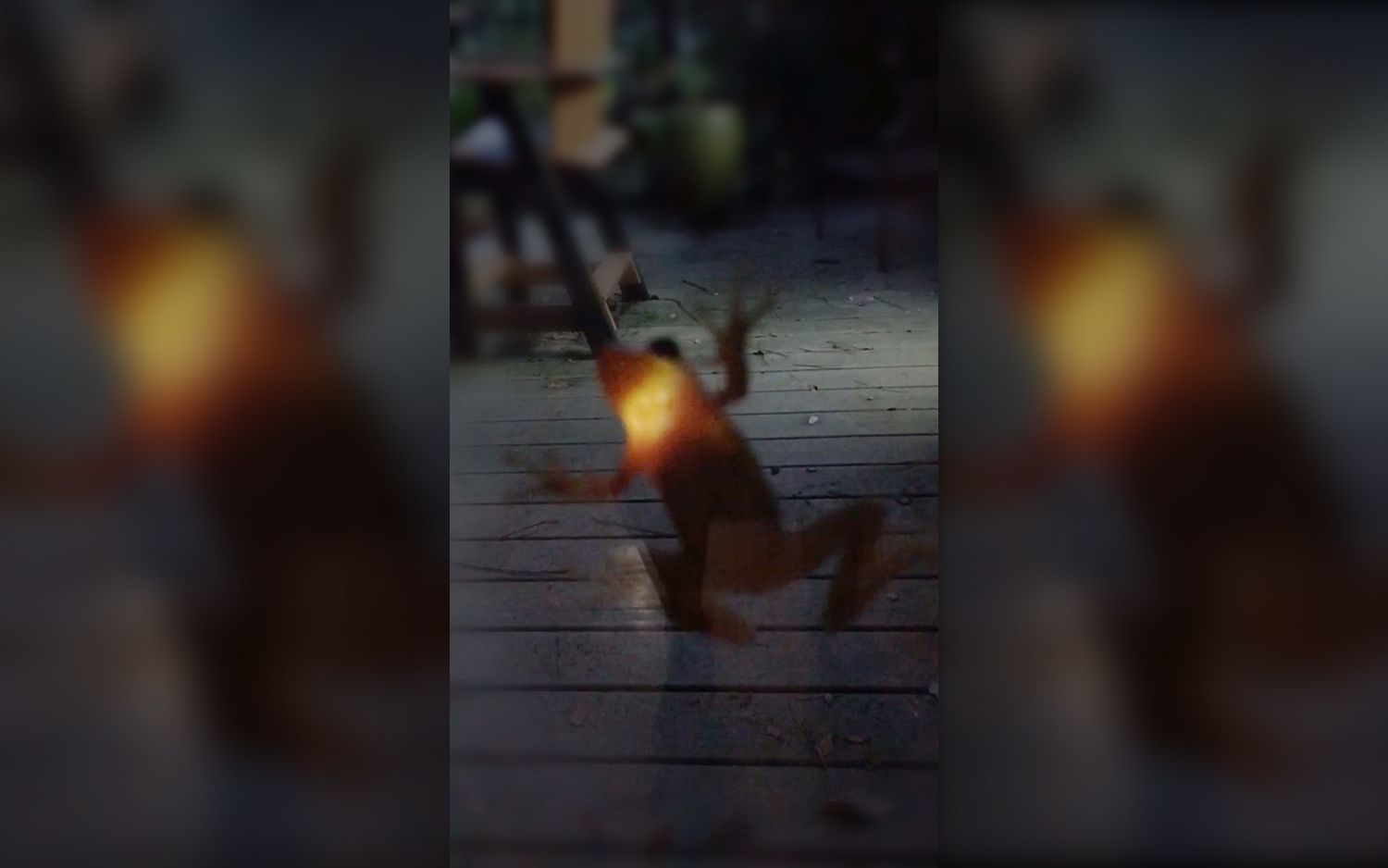When a frog eats a firefly, it can be harmful as fireflies contain toxins that are poisonous to various animals. The toxins, known as “lucibufagins,” are similar to cardiotoxins found in toads and plants.
Fireflies are not safe for consumption by frogs due to these toxic properties. Frogs, being natural predators, may sometimes mistake fireflies as potential prey. However, the ingestion of fireflies can have detrimental effects on the frog’s health and well-being. The interaction between frogs and fireflies highlights the delicate balance of nature and the importance of understanding the consequences of consuming certain organisms.
This phenomenon serves as a reminder of the intricate relationships within ecosystems and the potential dangers of ingesting toxic prey.

Credit: www.facebook.com
The Interaction
Witness a fascinating phenomenon as a frog consumes a firefly. The firefly’s glow remains visible inside the frog’s body, showcasing nature’s intriguing interactions.
| Fireflies contain toxins called “lucibufagins” that can be poisonous to frogs and other animals. |
| These toxins are related to cardiotoxins found in toads and plants. |
| When a frog consumes a firefly, the firefly may survive through the frog’s digestive system and be excreted alive. |
| Frogs typically prefer live prey over dead insects for their meals. |
Scientific Explanations
When a frog eats a firefly, the firefly’s toxins can be harmful. Fireflies contain lucibufagins, which are poisonous to frogs and other animals. The frog may spit out the firefly or pass it alive through its digestive system.
| Fireflies contain toxins, called lucibufagins, which are poisonous to various animals. |
| In the story of The Firefly and the Frog, a firefly teaches a shy frog how to “glow.” |
| Frogs don’t eat dead insects; they prefer their prey to be alive and moving. |
Survival Strategies
When a frog eats a firefly, the firefly’s toxins can be poisonous to the frog. Fireflies contain toxins called “lucibufagins,” which are chemically related to cardiotoxins found in toads and plants. Interestingly, when a Pelophylax nigromaculatus frog swallows a beetle, the beetle can survive by swimming through the frog’s digestive tract and be pooped out intact and alive. Frogs are not particularly picky eaters, preferring their meals to be moving and fresh. However, they won’t eat dead bugs or animals. Fireflies are toxic to amphibians, lizards, and potentially other animals, including birds. It’s important to note that frogs should not eat fireflies due to their toxicity.

Credit: www.livescience.com
Visual Impact
When a frog consumes a firefly, the firefly’s toxins can be harmful to the frog’s health. Interestingly, some frogs can pass the firefly through their digestive system, allowing the firefly to emerge alive. This unique interaction showcases the intricate relationship between frogs and their prey.
| Firefly’s Safety | Considerations for Pet Frogs |
| Fireflies contain toxins that are poisonous to frogs. | Ensure frogs’ environments are free of fireflies. |
| Avoid exposing pet frogs to fireflies to prevent harm. | Consult with a veterinarian about frog-safe diets. |

Credit: www.earthtouchnews.com
Frequently Asked Questions
What Happens When Frogs Eat Fireflies?
When frogs eat fireflies, they can become poisoned as fireflies contain toxic substances.
What Happens When A Frog Eats A Bug?
When a frog eats a bug, it helps control insect populations and gets nutrients for survival.
What Is The Story Of The Frog And The Firefly?
The story of the frog and the firefly is about a small frog who feels different from his friends, until he meets a firefly who teaches him how to “glow!” The firefly teaches the frog to embrace his uniqueness.
Do Frogs Eat Dead Insects?
Yes, frogs typically do not eat dead insects and prefer their prey to be alive and moving. They have tongues attached to the front of their mouths to easily grab their prey. However, it’s important to note that fireflies contain toxins that can be poisonous to frogs and other animals.
Conclusion
The interaction between frogs and fireflies is intriguing yet potentially harmful. Fireflies contain toxins that can be poisonous to frogs and other animals. This natural phenomenon sheds light on the delicate balance in nature. Understanding these dynamics is vital for preserving biodiversity.
